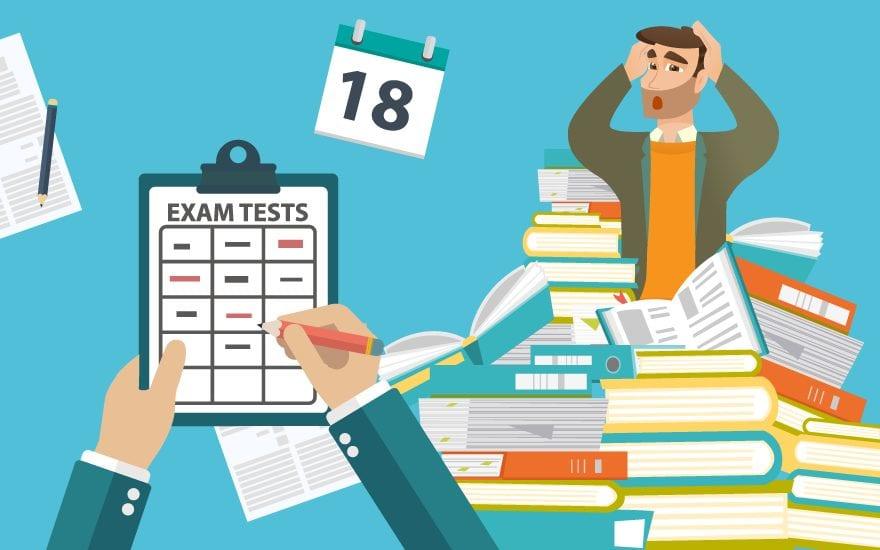The only thing worse than having a difficult conversation is having a difficult conversation when you don’t have any knowledge of how to navigate the situation.
Difficult conversations can come up in any relationship: At work, at school, with family, with friends, with your spouse, and even with strangers. While it’s easy to be flustered, defensive, uncertain, or even hostile during an uncomfortable situation, when you have the skills to cope, you can help calm a conversation down to reach a peaceful resolution.
The most common types of difficult situations are disagreements, arguments, misunderstandings, and emotional confiding.
- Disagreements can occur when there is a difference of opinion. Though disagreements may be mild and are a normal part of relationships, knowing how to respect another’s opinion without it damaging your relationship is important. If you are a witness in a disagreement, it may be tense because you don’t want to side with one person or another.
- Arguments might happen when there is an unwillingness to “agree to disagree.” At least one person feels the need to assert that they are right, and won’t concede until everyone else thinks the same way they do. Being a third party in an argument is stressful because it may escalate quickly even though you are trying to get it to calm down.
- Misunderstandings are just that: someone has the wrong interpretation of what someone else said or did, and it informs the way they feel and think. Trying to convince someone they are wrong, especially if they are extremely firm in the belief that they didn’t misinterpret anything, is another difficult challenge. It may or may not be worthwhile to get the truth out.
- Emotional confiding is when someone unloads something emotional. Sometimes it’s a mutual emotion, and other times people are looking for a shoulder to cry on or some words of affirmation. The situation requires care to make the other person feel heard while also maintaining your own boundaries.
What do you need to know in order to navigate difficult conversations like these? There are a few different approaches you should practice in advance so you can handle a difficult situation with ease.
“Difficult conversations are almost never about getting the facts right. They are about conflicting perceptions, interpretations, and values.”
Douglas Stone

Techniques To Practice for Difficult Conversations
You cannot be a pro at difficult conversations without the basics of conversation in general. Practice these skills in order to be able to have the conversations you want to have, rather than being at the mercy of where the conversation naturally goes.
Basic Conversation Skills
These are the fundamental conversation skills everyone should have. Without them, a conversation may be bumpy and awkward, or just not very good in general. The best way to improve any skill is: practice!
Active listening
Enter a conversation with cognizance, that is, being self-aware and paying attention to the state of the exchange. Notice if you are really listening, and if you aren’t, start doing it! Listen to what the other person is saying and when you speak, go with the flow of the conversation. Ask interesting questions and genuinely care about the answers. Avoid simply waiting for your turn to speak.
Appropriate interrupting (as opposed to disrupting)
Learn to avoid disrupting others while speaking. Only interject information that is truly useful or necessary, or required for your understanding of the information. Interrupting a conversation to be a know-it-all, make a petty correction, or divert the conversation to something you want to talk about are all things that make others feel prickly about talking with you.
Understanding body language and gestures
Even if you have a hard time reading body language, approach the situation with the intention to observe and learn it. Over time, you will have a much better understanding.

Understanding another point of view
Everyone has their own life experience and background. Understanding that they may have led a very different life than you and have very different ways of looking at things is crucial. Not everyone will understand what you know, and you will not understand everything everyone else knows, either. Nevertheless, you need to be respectful and use the opportunity to learn and teach new things.
Clear speaking
This is a skill you can practice on your own simply by talking to yourself, or by recording yourself and listening to it (everyone tends to hate the sound of their own voice, but don’t let that stop you from improving yourself!). You can also practice while in conversation.
Pay attention to two things: How you explain and describe things and how you sound. Ensure that you are able to give information with the right amount of detail (not too much, not too little), with the right kind of detail (stay on topic), and in understandable speech. Some people have accents or speech impediments that affect their speech. If that’s you, recognize it and own it, and try figuring out how to describe things in different ways so you can be understood more easily.
Emotional Intelligence
While you can conduct a decent conversation knowing only the technical aspects, you will have a hard time understanding the human side of a discussion without emotional intelligence (EQ). Where basic skills are the walls, floor, and roof, EQ is the paint, flooring, windows, and doors. You technically have a shelter with just the barebones basics, but it won’t be a home without all the rest.
The pillars of EQ are:
- Self awareness: Recognizing your own thoughts, emotions, and behaviors.
- Self regulation: Being able to control your own thoughts, emotions, and behaviors.
- Motivation: Knowing what drives you and why, and how to find motivation if it’s lacking
- Empathy: Genuinely caring about how other people feel.
- Social Skills: Essentially, basic conversation skills. Being able to sense the mood of a conversation, give and receive appropriate body language, and respect social norms.
With skillful EQ, your conversations can have substance as well as structure. By examining yourself, you grow as a person. Perhaps you make changes to the way you think or speak so that you are more authentic to how you really want to be perceived. Maybe you realize that you allow outside forces to upset you too much and you learn how to control your reactions better.
Having this introspective knowledge also helps you realize that everyone else out there has just as rich of an inner life as you do. You can better empathize, which makes you a more genuine person. You can also understand better why someone might be upset, scared, confused, or angry.
You can practice EQ in a similar way as basic conversation skills. By observing conversations you are having while having them, as well as reflecting on them afterward, you can learn what works and what doesn’t. You may find you need to build your empathy, or maybe tone it down if you find that other people’s emotions affect you too strongly.
Journaling can be a really helpful tool for these skills. Learn to look within and find out what makes you tick so that you can be fully aware and present of all the things going on in your subconscious when you interact with people. This is especially helpful for difficult conversations when it’s easy to get caught up in the moment and the emotions of others.

Specific Examples of Difficult Conversations
What exactly are we talking about when we say “difficult conversations?” There are too many to list, but in general, it means when you are in an emotionally-charged exchange with another person.
This can look like the obvious: an angry altercation of shouting, name-calling, crying, erratic actions, and harsh words. Or, you might think of breaking hard news to someone, which creates intense emotions other than anger.
Truthfully, a difficult conversation can pop up anywhere. It can even result from things like questioning the price charged to you at a restaurant, or bumping into someone on the street.
Here is a non-exhaustive list of some examples of difficult conversations and how knowing conversational skills can help you with them.
Parent-Teacher Discussions
Hearing something negative from your child’s teacher can create an emotional charge in you. You might feel disbelief at the teacher, or maybe frustration with your child. Either way, it can be easy to give in to less-helpful ways of dealing with the situation.
Practice active listening to ensure really know what the problem is. Ask questions, utilizing appropriate interruption when needed. Understand the teacher and school’s point of view, as well as your child’s. Ensure you speak clearly to the teacher and then later, to your child.
When addressing the problem with your child, utilize all of the EQ techniques so the best outcome can be reached. Talk about the reason for the behavior that sparked the meeting with the teacher, and figure out why it’s happening. Encourage your child to develop EQ as well so they can manage their own emotions, too.
Addressing a Concern with a Family Member
Whether it’s talking about a change in the house, confronting someone about their behavior, or having a discussion about finances, hard conversations with a family member are an easy way to break down during a conversation. We have so much emotional investment with a person, plus we may need to cohabitate with them every day, so it’s really important that the conversation goes well.
Practice using EQ so that you can empathize with your family member, see their point of view, and communicate your motivation for the discussion. Be honest, speak clearly, and stay steady with your emotions. Overcoming a problem together helps to strengthen your bond, but falling into the trap of an argument stemming from unexpressed thoughts can divide you.
“Because no matter how hard a conversation is, I know that on the other side of that difficult conversation lies peace. Knowledge. An answer delivered. Character is revealed. Truces are formed. Misunderstandings are resolved. Freedom lies across the field of the difficult conversation. And the more difficult the conversation, the greater the freedom.”
Shonda Rhimes
Constructive Criticism
Receiving constructive criticism may be difficult because it can feel like you are being attacked personally and your worth is being evaluated. True constructive criticism does not have this intention, and if someone is passing judgment on you this way, they need to be ignored. Giving criticism can also be difficult because you don’t want the other person to feel you are doing those things to them, either.
Learn how to give high-quality constructive criticism, and learn how to receive it as well. Even in a business or school setting, be sure to have your EQ engaged, especially when giving feedback. You want to be able to convey the ideas to the receiver in a way that their lasting impression is “ways to improve my work,” and not “ways I am a disappointing human being.”
Conflict at Work
Conflicts at work are especially tricky because there is usually a very clear order of command, and having a discussion go rogue and turn into an argument can have a negative impact on your job status. If you are not in a management position, you probably only need to be concerned with conflicts that involve you or your department directly. If you do have a management role, you may need to become involved or be a mediator for those who work under you.
In addition to all of the skills above, you will also want to learn how to handle conflict specifically. Even if a conversation doesn’t escalate to “conflict” exactly, you will want to be able to diffuse the tension and keep it from getting more dire. Some tips to deal with difficult work conversations are: staying calm, practicing active listening, using “I” statements, and avoiding taking sides.

Where to Learn and Practice Conversation Techniques
You can learn and practice more specific techniques through various resources.
Books, Blogs, Podcasts
There are many, many books written on all aspects of all kinds of discussions and conversations. You can find books on conflict management skills, persuasion skills, body language reading, and so much more!
Blogs and Podcasts are often extensions of the ideas an author wrote about in their book. You can get more information from them and others in these multimedia formats.
YouTube
Another platform where authors can post more extensive information, YouTube is also home to knowledgeable people who have never written a book. It’s a much easier task to create a YouTube channel than it is to get published. So you can find many people like professional mediators, public speakers, and more. It can also be a lot faster to learn through video than reading, depending on your learning style.
Coach
Having a coach who can help you learn effective conversational techniques firsthand is valuable. They can evaluate your progress and give you personalized, specific feedback on how you can improve. You can easily find a coach in the conversational arts on Superprof.
Real Life
As mentioned before, you have an opportunity to self-evaluate and practice your skills every time you have a conversation. Take mental notes during the conversation, and perhaps reflect and journal on it afterward. You can practice difficult conversations with a friend, and if they witness a discussion you are in, you can ask them how they felt about it after.
The conversation is an essential skill to communicate with others. After all, communication is key to how we all get along as a society. Being able to navigate discussions, chats, negotiations, and more is necessary for building the life you want and doing the things you need. Learn and practice how to be a good conversationalist so you can more easily handle what life hands you.
Summarise with AI:






















